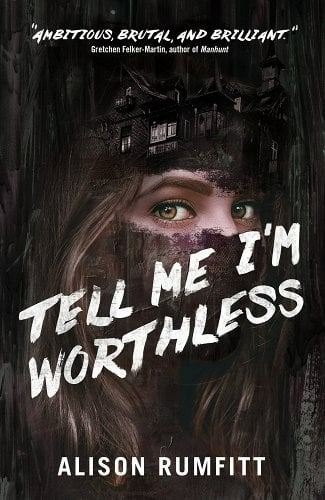Buy this from Bookshop.org to support local bookstores and the Lesbrary! I feel so conflicted about Tell Me I’m Worthless, because it’s one the most thought-provoking and memorable horror books I’ve ever read. The sections I liked were captivating, and in the first chapter, this felt like a new favourite book. But there were alsoRead More
A Trans Teen Finds Her Words: Just Happy to Be Here by Naomi Kanakia
Buy this from Bookshop.org to support local bookstores and the Lesbrary! Tara is the first trans girl to attend Ainsley Academy, an all-girls school. She finds it hard to fit in, especially considering that she’s also one of the few students of color. One place she does feel like she belongs is the Sibyls, anRead More

